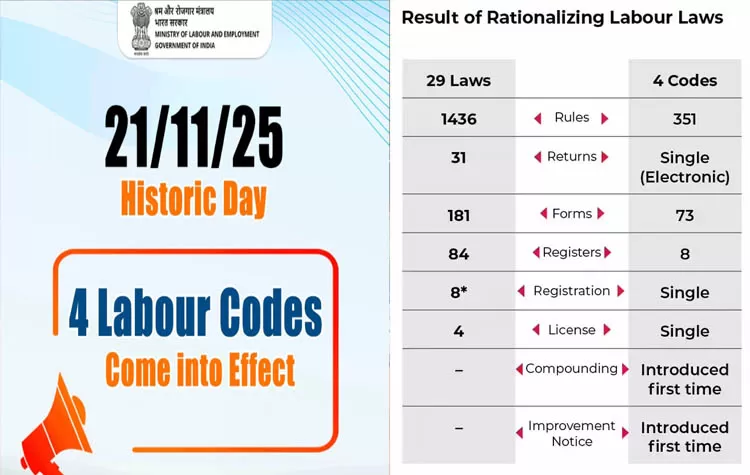
New Labor Regulations
Presently, the central government integrated 29 labor laws into four revised labor codes. According to Biswabhushan Prushti, Deputy Chief Labor Commissioner for the Telugu States, the endeavor is aimed at guaranteeing equal treatment for all workers. He clarified that no employer is allowed to pay less than the National Floor Wage to regular or contract workers. He added that guidelines regarding the new codes will be prepared soon and trade unions, along with workers, can share their feedback.
Work Hours and Overtime Requirements
Prushti further explained that the limit on the number of hours worked per week remains 48. Beyond this, every employee is entitled to overtime wages. The regulation supports a fine balance between time for work and personal life.
Changes in Organizational Closure Rules
Earlier, companies employing more than 100 people needed to get the government's approval to close down. The new code increases this threshold to 300 employees. This particular change has been opposed by some trade unions.
Consolidation of Labour Laws
There were 44 labor laws in the past. A few of them were deleted, and the rest were combined into four codes: The new wage code aims to offer equal wages and bonuses across all worker categories.
Implementation of Additional Codes
The codes relating to industrial relations, social security, and occupational safety and working conditions have come into force with effect from today. Wages fixed by the National Wage Committee will be higher in most industries than what is prevailing now.
Social Security Expansion
Now, the beedi workers and gig workers are covered under the ambit of social security programs. Contract workers and service workers will get proper appointment terms. Fixed-term employees will get wages equal to permanent workers.
Improved Pay Scale Standards
Some employers in the past cut basic wages and dearness allowance and increased other allowances. This method reduced the EPF, gratuity, and bonus for workers. According to the new rules, 50% of the total salary will be considered for these benefits.
Rights for Migrant and Long-Term Workers
Migrant workers can now self-register. Employees completing one year of service will be entitled to gratuity. Workers, who earlier had six months to appeal for unpaid wages and benefits after leaving a job, will have the limit extended to three years.
Use of Fines for Worker Welfare
Previously, fines for violations of social security norms would go directly to the labor department. However, this money is now to be utilized to support the concerned company and its employees.
Expanded Maternity Benefits and Childcare Requirements
The maternity leave has been extended from a period of 12 weeks to 26 weeks starting from the date of the delivery. Both parties may mutually agree for work-from-home facilities during this period. The companies must arrange childcare facilities for support to working mothers.













